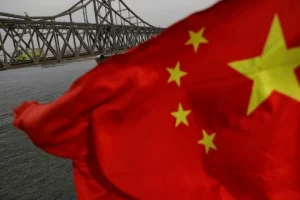For Europe, this year has been nothing short of a nightmare so far. At present several countries in the continent are battling a severe drought, which has damaged large swathes of crops amid already dented food and energy supplies. The UK, France, Spain, Italy, Portugal and the Netherlands are among those hit by the drought. The crisis is only deepening with the ongoing heatwave which is showing no signs of easing.
Maize, sunflowers, rice, soybeans and potatoes are typically grown in the summer. Europe’s food imports could rise amid unprecedented geopolitical uncertainties.
Like other parts of the world, crop production in Europe too is sensitive to prevailing weather and climatic conditions. Depending on a plant’s stage of development, heavy spring frosts can damage the growth of cereals and destroy fruit blossoms, Eurostat noted. Similarly spring-to-summer droughts and heat waves can cause significant yield losses, it added.
In June, the cost of food in the European Union, one of the largest trading partners for India, increased 11.57 per cent compared to the same month in the previous year.
High food prices in Europe will not remain restricted to the continent.
Ajay Sahai, director general and CEO, Federation of Indian Export Organisations (FIEO) told India Narrative that the crisis in Europe will push up global food prices. “Costs of agriculture produce and food items could increase and that will also further put pressure on the domestic market,” Sahai said.
He also said that the high prices will impact the poorer nations, especially many in Africa. “Concerns are rising for Africa as their production is not much and with such high global food prices, hunger levels may rise. We need to remain watchful,” Sahai added.
Trade Finance Global, a fintech platform said in a report said that as Europe “bakes in the latest heatwave, fears are growing about what’s being dubbed ‘heatflation’ – climate change-driven staple crop losses that could see already inflated food prices reach new highs this autumn, deepening the cost-of-living crisis.’
A Bloomberg report even said that the excessive energy prices are now forcing some vegetable oil producers to relocate their production outside Europe in search of lower energy costs.
And the worst is yet to come as Europe enters the winter season.
The report pointed out that if Europe has to resort to energy rationing in case of a shortage of natural gas and electricity in the winter, some “food factories may have to be shut down as governments prioritize household energy security.”
Recently, France set up a specially designated team to handle the situation. According to reports more than 100 municipalities are running short of water. Trucks are now being used to carry water to several parts of the country, hit by the shortage.
Also read: Dutch farmers' protests take an ugly turn




















